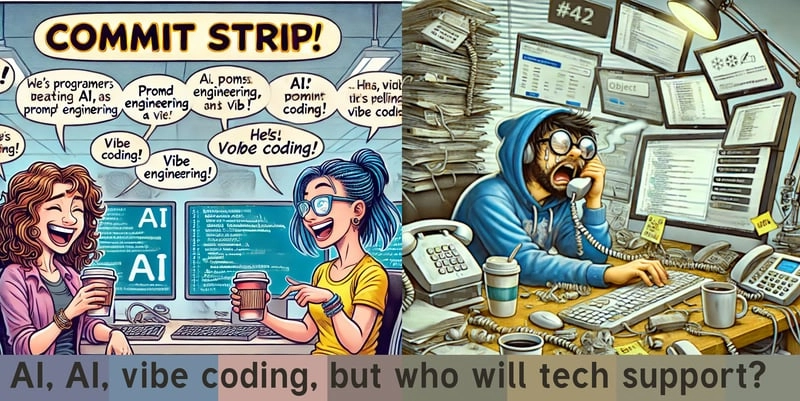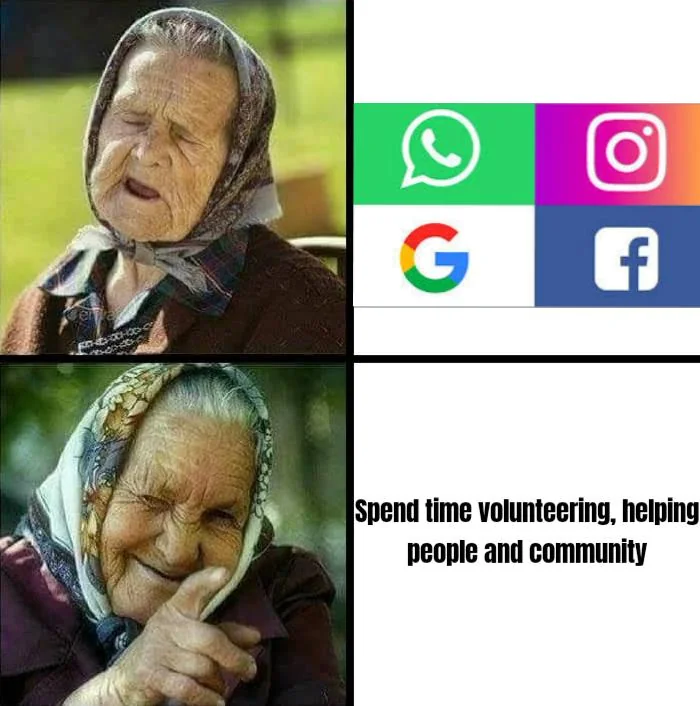This is another subjective and incomplete selection of relevant, high-quality posts, a follow-up to my personal DEV reading lists from 2023 and 2021/2022 featuring mostly DEV and some other sources, including some of my old bookmarks that I think are still worth reading, and new articles from 2024, 2025, and beyond.
Updated reading list 2024 - 2025 (WIP)
This document will be updated occasionally until the end of 2025, focusing on content published or updated since 2024, with a focus on DevUX, IndieWeb, accessibilty, interoperability, sustainable and inclusive web design, marketing and search engine optimization, and how to stand out as a human despite the global polycrisis and AI-related trends and challenges vibe coding, prompt engineering, AI slop, AI hallucinations, and AI intoxication.
Table of Contents
...
Authentic Content vs. Spam, Slop, Algorithms, AI Hallucination
- Echoes of the Past - Tech is Still Not Equal for All
- About the Dead Internet Theory and AI
- Your AI Agent isn't an Engineer
- Tunnel Syndrome: AI's biggest weakness?
- Fediverse and other IndieWeb Alternatives to the Meta-Broligarchy
- Rant about AI
- Human Writing in the Age of AI
- Letter in the Ocean: Why should we keep writing? AI vs. human generated posts
- Why you should not be using AI as a writing assistant
- LLMs will lie forever
- Why "AI" is the new "sustainable"
- Open Source AI Content Detector APP to separate COMPLETELY AI vs HUMAN generated posts: 🤖 vs 🧑
- ChatGPT Drinks 500ml of Water Every Time You Talk to It but Why...??
- Stop Gaslighting Me - AI Won't Replace Human Devs Anytime Soon
- 🚀 The Rise of "Vibe Coders" – And Why Real Skills Matter More Than Ever
 "AI, AI, vibe coding, but who will tech support?" (Source: DEV Meme Monday)
"AI, AI, vibe coding, but who will tech support?" (Source: DEV Meme Monday)
Productivity, Vibe Coding, Tools and Strategies
- Dangers of AI coding tools
- State of generative AI in Software Development: The reality check!
- AI Tools: Are We Replacing Skills or Enhancing Them? (and at what cost)
- Code, Context, and AI: Why Human Developers Still Matter
- It’s Not A.I. — Junior Developers Have Always Struggled to Code
- Why Improving Your AI Model Is Killing Your Project’s Success
- Why Most AI Teams Are Stuck
- Common Ground: A Framework for Human-AI Collaboration
- Designer-Developer Collaboration: 2024 Survey Results
- My notes on Make Haste Slowly
- 80% of Software Engineers Fail to Become Senior Developers — And Here’s Why
- Three Simple Rules to Solve Unsolvable Organizational Problems
- How I learned to code with my voice
Coding, Web Design, and Web Development
I don't care what's a "programming language" or what isn't, even less so in times of "no cdoe" and "vibe coding". Web development can be a handicraft synergy of coding, creativity, and communication. CSS is descriptive, logical, and emotional. Semantic HTML is a robust foundation of accessible and successful content presentation, while TypeScript and JavaScript can add optional UX improvements or unnecessarily reinvent and overcomplicate web development. It's our choice.
Frontend Design, Usability, Accessibility, CSS
- 5 Essential HTML and CSS Tricks to Ditch JavaScript
- Future of CSS: Select styling without the hacks
- CSS Just Changed Forever🤔: 7 Revolutionary Features You Need to Know
- Rethinking CSS in JS
- Stop Fighting RTL Layouts: Use CSS Logical Properties for Better Design
- Is Your CSS Logical?
- CSS is Emotional: The Box Model of Personal Space
- CSS is Emotional: Technical Debt - The Emotional Baggage of CSS

Frontend Logic, TypeScript, JavaScript
- 😅 Things I Thought Were 'Advanced' But Are Actually Super Simple
- trimMiddle() - the missing String trim method
- Accessible components: Pagination
- Vanilla JS carousel that is accessible, swipeable, infinite-scrolling, and autoplaying
- Why the Latest JavaScript Frameworks Are a Waste of Time
- Why Does Everyone Hate React?
- Why I Decided to Stop Working with React.js in 2025
- 🙅 Why Hating TypeScript in 2024 Doesn't Make Sense
- Should web designers learn JavaScript or CSS?
Backend and Other Programming Topics
- Alphanumeric / Natural sort in MySQL - 30 years and we still can't do this? 😤
- The Myth of GraphQL
- Why Rewriting Everything in Rust Won’t Solve All Your Problems
Local, Free, and Open-Source Software
- Rely less on Third-Party Services
- Fediverse and IndieWeb Alternatives to the Meta-Broligarchy
- Reviving a 2015 MacBook Air with Ubuntu: A Step-by-Step Guide to Breathe New Life into Your Old Mac
- Top 20 European Alternatives to Major US Technology Services: You Could Change Right Now
Although "we won the fight for open-source-software," nobody seems to have noticed, and mainstream corporate tech keeps holding on to its wealth and power. Linux powers servers, smartphones, wearables, and self-driving cars. Microsoft's open-source Visual Studio Code is one of its most popular software products and they replaced their Internet Explorer browser with a follow-up's follow-up based on the open-source rendering engine that won the "browser wars".
Without fighting a physical battle, we've got git, GitHub, Figma, node.js, TypeScript, automated testing and devOps deployment pipelines, linters, and coding copilots, so life could be easy for web developers. Unless you're part of the majority of minorities hampered by social, economical, ecological, or technological challenges and barriers, or if you have a life in real life.
Other Excerpts from my DEV Reading List
- How to Stay and Grow in Tech (especially if you're a minority)
- Attending Tech Conferences With a Toddler: A DevRel Mom’s Story
- Breaking into Tech at Midlife: A Nigerian’s Career Transition Story
- 📹 An Awesome List of #WomenInTech on Youtube
Where to find your own Reading List on DEV.to
dev.to/readinglist is your full reading list, if you're a logged-in DEV member.

DEV image no longer exists :(


